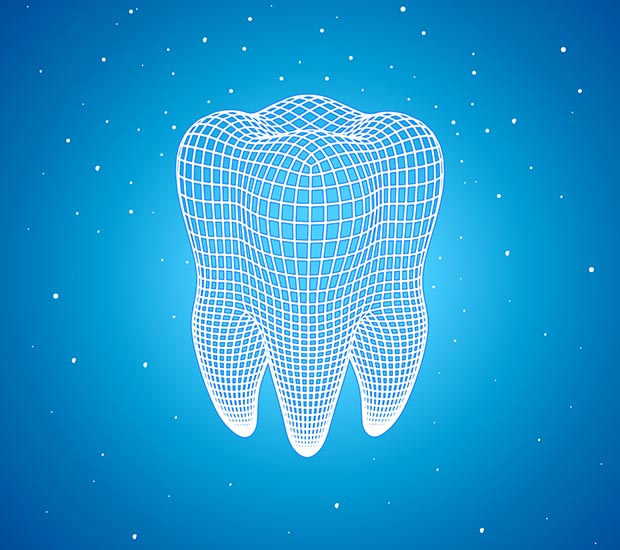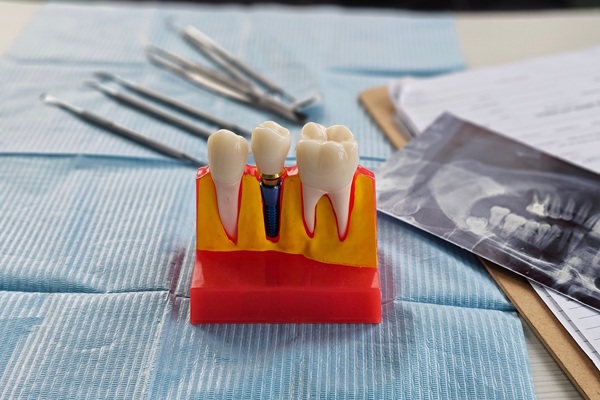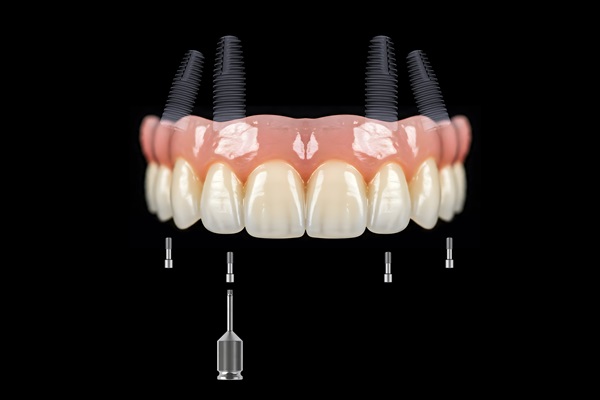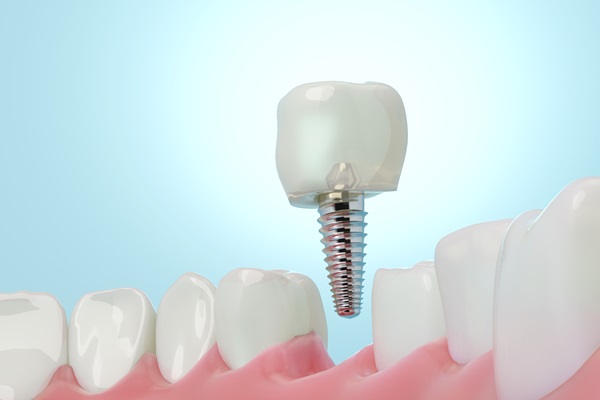Guided Implant SurgeryBoca Raton, FL
Guided implant surgery has greatly influenced the way in which dental implantation is performed. This technique allows for more precise, accurate movements throughout the implant process. It can also prolong the longevity of the implants themselves for a more natural-looking smile and longer-lasting results.
At Thomas A. Copulos DDS, PA we offer guided implant surgery for patients interested in undergoing dental implantation. Our team can help assess your case and determine any necessary treatments prior to the implant procedure. To learn more about a procedure or schedule an appointment, call 561-763-1066 today.
What are Dental Implants
Dental implants are artificial titanium roots that support a dental prosthesis, such as a crown, bridge, or denture. The implant resembles a screw in both size and shape. Although dental implants refer to the implant themselves, the treatment typically describes the entire process, including the implant, an abutment (or connector piece), and the artificial tooth replacement.
Dental implants treat missing, damaged, or severely decayed teeth. Dental professionals surgically implant them into the jawbone where the tooth is missing or was removed. The implants bond with the natural bone around them through a process called osseointegration, becoming a permanent part of the mouth.
Understanding Guided Implant Surgery
Guided implant surgery is a fairly new technique that uses the patient’s dental cone beam computed tomography (CT) images combined with computer software to improve the effectiveness and overall result of the surgery. This contemporary technique blends acquired images to currently existing dentition and creates precise guides specific to implants. Guided implant surgery involves both the manufacture and placement of dental implants efficiently, precisely, and effectively.
Using 3-D images of the teeth, soft tissues, nerve pathways, and facial bones from the CT images and live imagery of these structures through the guided implant device, it is possible to perform the implantation in more precise movements. The surgery is guided by advanced technology and custom-designed to each patient’s unique mouth and facial structures. With proper care and maintenance, this produces more accurate, natural-looking results that typically last for longer periods.
Candidates for Guided Implant Surgery
Good candidates for guided implant surgery are those who qualify for dental implants. This includes patients who are missing a tooth or multiple teeth but are in good overall health to undergo an oral surgery procedure. There is a dental implant solution available, whether a patient requires a single tooth or all their teeth replaced. However, adequate jawbone mass is essential for effective and successful implant surgery.
In some cases, a bone graft may be necessary. Bone grafts provide a sufficient amount of bone material to secure the implant in place and allow for the process of osseointegration. Bone grafting typically uses excess bone material from the patient or a donor, but at times may use synthetic bone if any natural bone is unavailable. Bone grafting is a separate procedure with its process and recovery time. Upon completion of a bone graft, we may begin the dental implant process.
Process of Guided Implant Surgery
The entire process of getting dental implants can range from several months to over a year, depending on the complexity of the patient’s case. Dr. Copulos will thoroughly examine the patient’s mouth to determine where implants are needed and whether any teeth will need extraction. This exam may include radiographs (x-rays) or an in-office ConeBeam Catscan to obtain a complete picture of the teeth and jaw. We will then curate a custom treatment plan and discuss the patient’s options, including whether they will require a bone graft.
On the day of the implant surgery, we begin by administering an anesthetic to numb the patient throughout the procedure. The implant is placed using the guided technique, and osseointegration begins, which could take a few months. Once the implant is properly fused to the jawbone, we will place an abutment that will connect the implant to the artificial tooth prosthesis. The gums will take a few days or weeks to heal, after which we will take impressions of the top and bottom jaws and create a custom-made crown, bridge, or dentures.
Maintenance and Recovery
Throughout the implant process, we will guide and instruct the patient on proper care and maintenance techniques for their implants. Proper care and maintenance can prolong implant longevity and prevent complications from arising. Just like natural teeth, dental implants require proper home care and routine visits to the dentist and Dr. Copulos’s office.
At home, brushing, flossing, using a Waterpik, and other tools are important for daily cleaning around the dental implant and crown. We highly recommend a professional dental implant maintenance every three months to ensure proper health around the new implant-supported tooth, alternating between our office and a restorative or general dentist’s office. Patients experiencing any complications should immediately schedule an appointment to determine the cause and resolve the issue.
Frequently Asked Questions About Guided Implant Surgery
What is Guided Implant Surgery?
Guided implant surgery is a new guiding technique in which a dental professional uses both CT images and live computer software to help guide the surgery. This type of implant surgery is much more precise and effective.
How long does recovery take after implant surgery?
The process of implant surgery may take several months from start to finish. However, the recovery period itself is quite short. Many patients are able to return to normal activities the same day or the next day with the use of over-the-counter pain relievers. Patients may need more recovery time during the other steps in the process prior to placing the final permanent crown.
What is the process of receiving a dental implant?
Depending on whether a patient requires a bone graft, the process may take a few steps. Bone grafts are the first step. Once there is an adequate amount of bone in the jaw, we may begin the placement of the implant. The process of osseointegration takes a few months as the implant properly fuses to the jawbone. After that, we will place an abutment and allow the gums to heal. Finally, we can place the permanent prosthesis, such as a crown or denture.
How does guided implant surgery differ from traditional implant surgery?
Guided implant surgery is more precise than conventional methods. It is particularly useful in complex cases as computer technology uses more accurate measurements for increased precision. Patients can choose to undergo guided surgery but need to find a doctor who performs this type of procedure.
How long do dental implants last?
With regular brushing and flossing, the dental implant screw itself can last a lifetime. This involves receiving regular dental check-ups every six months and treating oral conditions as they arise. The prosthesis, however, usually lasts about 10 to 15 years before it may need a replacement due to wear and tear. This will depend on the patient’s care regimen and the quality of the material used.
Schedule a Visit Today
Guided implant surgery is available at our office. The Thomas A. Copulos DDS, PA team looks forward to treating you and providing comfortable, successful implant treatment. Call our office at (561) 763-1066 to learn more or schedule an appointment.
Thomas A. Copulos DDS, PA is located at
1000 NW 9th Ct Ste 106
Boca Raton,
FL
33486





